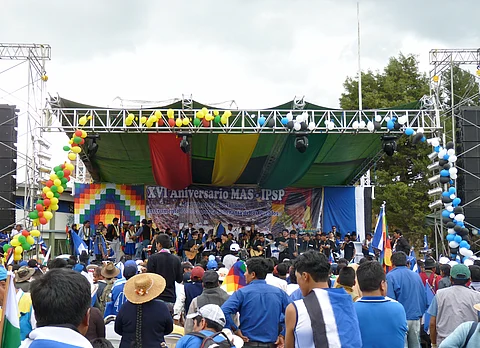

Bolivia’s voters went to the polls on Sunday to elect a new president and Congress members, with expectations that the ruling Movement for Socialism (MAS) could lose power after nearly 20 years.
The election, marked by a severe economic crisis with 25% annual inflation and shortages of fuel and dollars, has seen right-wing candidates take the lead.
Polling stations opened at 8am (12:00 GMT) and closed at 4pm (20:00 GMT), with initial results expected after 9pm (01:00 GMT Monday).
The Andean nation faces its worst economic crisis in decades, with long queues for basic goods like fuel and bread.
Right-wing frontrunners Jorge “Tuto” Quiroga, a former interim president, and Samuel Doria Medina, a wealthy businessman, have promised major reforms to address inflation and shortages.
Doria Medina, a centrist, vowed to stabilize the economy within 100 days while preserving anti-poverty programs.
Quiroga, known for his tough rhetoric, pledged sweeping changes, stating, “We will change everything, absolutely everything after 20 lost years.”
The socialist MAS party, weakened by internal divisions, is struggling to maintain its grip on power.
Former President Evo Morales, barred from running and facing legal issues, has urged supporters to cast null votes, saying, “Brothers, we are on the right track. Absenteeism, blank ballots, undecided voters, all of it.”
MAS candidate Eduardo del Castillo, backed by outgoing President Luis Arce, polls at just 2%, while independent Andronico Rodriguez, once a Morales ally, represents a fractured left.
Analyst Carlos Toranzo noted, “Before Morales’s call, null votes were about 10%; now they’re 12%,” but doubts their impact will be decisive.
Official results are expected within seven days, with a potential runoff on October 19 if no candidate secures a majority.